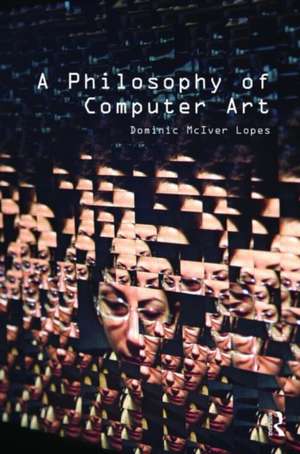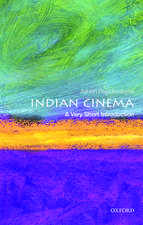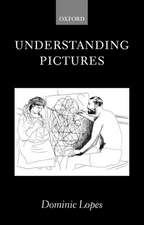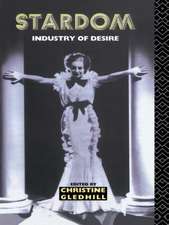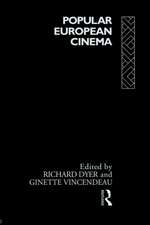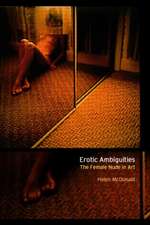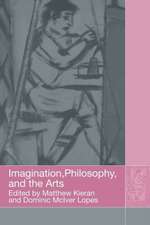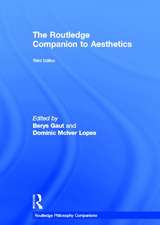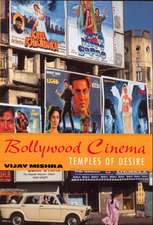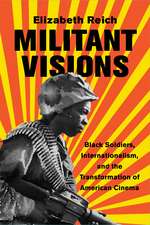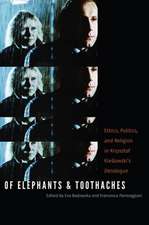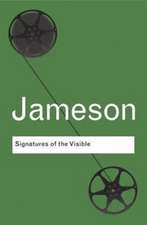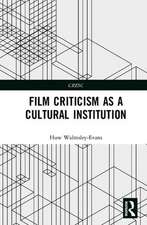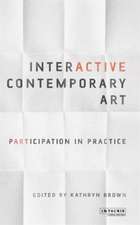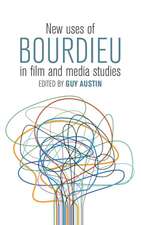A Philosophy of Computer Art
Autor Dominic Lopesen Limba Engleză Paperback – 25 aug 2009
A Philosophy of Computer Art is the first book to explore these questions. Dominic Lopes argues that computer art challenges some of the basic tenets of traditional ways of thinking about and making art and that to understand computer art we need to place particular emphasis on terms such as ‘interactivity’ and ‘user’.
Drawing on a wealth of examples he also explains how the roles of the computer artist and computer art user distinguishes them from makers and spectators of traditional art forms and argues that computer art allows us to understand better the role of technology as an art medium.
| Toate formatele și edițiile | Preț | Express |
|---|---|---|
| Paperback (1) | 409.73 lei 6-8 săpt. | |
| Taylor & Francis – 25 aug 2009 | 409.73 lei 6-8 săpt. | |
| Hardback (1) | 1000.51 lei 6-8 săpt. | |
| Taylor & Francis – 25 aug 2009 | 1000.51 lei 6-8 săpt. |
Preț: 409.73 lei
Nou
Puncte Express: 615
Preț estimativ în valută:
78.40€ • 82.15$ • 64.81£
78.40€ • 82.15$ • 64.81£
Carte tipărită la comandă
Livrare economică 11-25 aprilie
Preluare comenzi: 021 569.72.76
Specificații
ISBN-13: 9780415547628
ISBN-10: 0415547628
Pagini: 160
Dimensiuni: 156 x 234 x 10 mm
Greutate: 0.3 kg
Ediția:New.
Editura: Taylor & Francis
Colecția Routledge
Locul publicării:Oxford, United Kingdom
ISBN-10: 0415547628
Pagini: 160
Dimensiuni: 156 x 234 x 10 mm
Greutate: 0.3 kg
Ediția:New.
Editura: Taylor & Francis
Colecția Routledge
Locul publicării:Oxford, United Kingdom
Public țintă
Postgraduate and UndergraduateCuprins
1. The Machine in the Ghost 2. A Computer Art Form 3. Live Wires: Computing Interaction 4. Work to Rule 5. Artist to Audience 6. Computer Art Poetics 7. Atari to art Envoi: a New Laocoön. Notes. Bibliography. Index
Recenzii
'Every art student enrolled in a Digital 101 course should read this book. Summing Up: Essential. Lower-level undergraduates and above; general readers.' - CHOICE
Winner of the American Society for Aesthetics Outstanding Monograph Prize, 2010
‘In this groundbreaking book, Dominic McIver Lopes offers a rigorously argued, tightly formulated and highly original account of computer art. Rich in examples and brimming with insights, it will provide everyone interested in computer art with a deeper understanding and appreciation of this fascinating art form.’ - Berys Gaut, University of St. Andrews, UK
‘This book argues that computers provide a new medium for art, rather than simply being a new vehicle for displaying art. This raises a host of intriguing questions, forcing us to think again about what we thought we knew about art. Lopes is the ideal guide; being one of our leading philosophers of art, and also completely at home in the world of computing. This is a very good book which considers genuinely interesting issues in an accessible and enlightening way.’ – Derek Matravers, The Open University, UK
Winner of the American Society for Aesthetics Outstanding Monograph Prize, 2010
‘In this groundbreaking book, Dominic McIver Lopes offers a rigorously argued, tightly formulated and highly original account of computer art. Rich in examples and brimming with insights, it will provide everyone interested in computer art with a deeper understanding and appreciation of this fascinating art form.’ - Berys Gaut, University of St. Andrews, UK
‘This book argues that computers provide a new medium for art, rather than simply being a new vehicle for displaying art. This raises a host of intriguing questions, forcing us to think again about what we thought we knew about art. Lopes is the ideal guide; being one of our leading philosophers of art, and also completely at home in the world of computing. This is a very good book which considers genuinely interesting issues in an accessible and enlightening way.’ – Derek Matravers, The Open University, UK
Descriere
In A Philosophy of Computer Art Dominic Lopes argues that computer art challenges some of the basic tenets of traditional ways of thinking about and making art and that to understand computer art we need to place particular emphasis on terms such as ‘interactivity’ and ‘user’.
